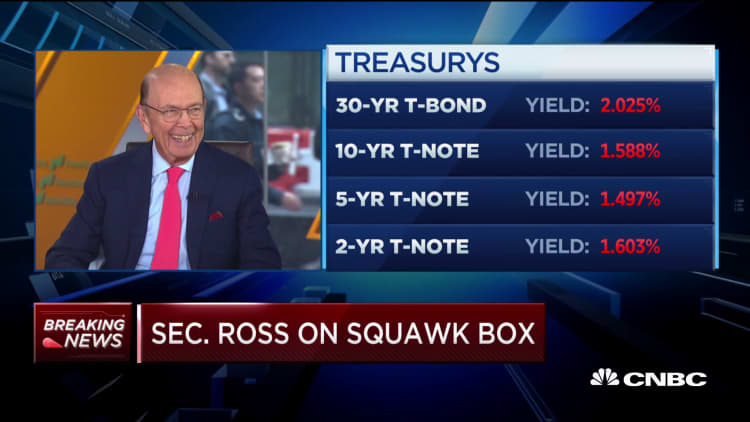
Commerce Secretary Wilbur Ross told CNBC on Wednesday that the Trump administration's decision to delay upcoming tariffs on certain items, including smartphones, was not a trade concession to China but to help American consumers.
"Nobody wants to take any chance of disrupting the Christmas season," Ross said, adding that "this was not a quid pro quo" in trade negotiations with Beijing.
U.S. officials announced Tuesday that certain items were being excluded from President Donald Trump's upcoming 10% tariffs on the $300 billion of Chinese imports not already taxed. Tariffs on other items on the president's new list are being delayed until mid-December, instead of the original Sept. 1 start date.
Hayman Capital Management founder Kyle Bass told CNBC on Tuesday that it looks the president blinked to halt the stock market's decline. The hedge fund manager, a longtime China and Trump critic, said Beijing sees the tariff de-escalation as weakness.
Short-selling specialist Jim Chanos, a noted Democratic donor, echoed similar sentiments Tuesday, saying that Chinese President Xi Jinping may believe the U.S. could cave with enough pressure. "So then tell me why Xi should not continue to wait out 'the world's greatest negotiator,' who keeps 'dealing' with himself?" tweeted Chanos, founder and managing partner of Kynikos Associates.
Ross told "Squawk Box" that the planned tariffs had been in the works a while before the stock market started to decline from July's all-time highs.
"We've been doing analysis since the hearings were announced by the USTR," Ross said. "Even though they were only announced as being imposed recently, the analytical work began well before that."
Tuesday's tariff announcement led to a powerful rally that broke a two-session losing streak.
However, U.S. stock futures were sharply lower Wednesday due to recession concerns after the 2-year Treasury yield inverted and moved higher than the 10-year yield for the first time since 2007. A flip in that spread has preceded every recession over the past 50 years.
The flight from stocks into bonds has been a popular trade as investors seek perceived safety against wild swings on worries about global growth due to the trade dispute between the world's biggest economies.


